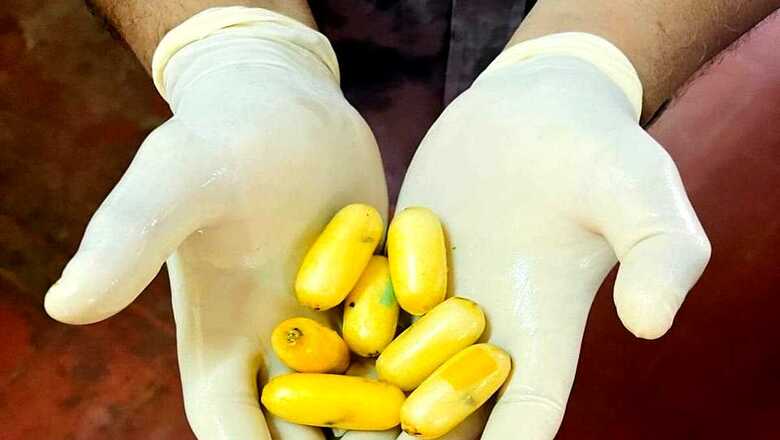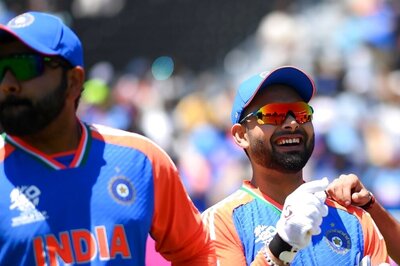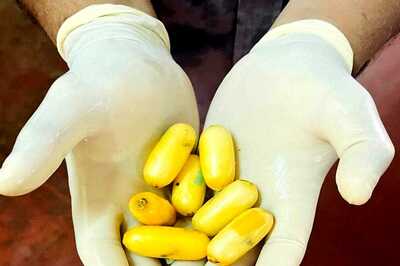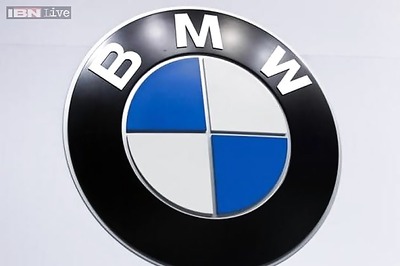
views
Last week, a story that generated too much buzz was around the quality failure of many commonly used medicines. The trigger was the mention of widely used medications, including popular antacids, fever reducers, antibiotics and high-blood pressure medications in the monthly drug alert issued by the regulatory authority, Central Drugs Standard Control Organization (CDSCO).
News18 was the first to report the story after awaiting responses from the drugmakers mentioned in the alert list issued by CDSCO, which are still accessible on their website.
After more than 24 hours, only two pharmaceutical companies shared the requested comments, while the others either ignored or did not acknowledge the email. As the story gained traction and other media outlets began covering it, almost all drugmakers released statements asserting that the drugs in question were counterfeit and that they did not produce them.
On Sunday morning, the Indian Pharmaceutical Alliance (IPA) – a pharma lobby backed by India’s top drug makers, some of whom were mentioned in the alert list – issued a press release venting anger over unfair implications over legitimate drugmakers in producing counterfeit drugs.
It said that the lobby will collaborate with the government to strengthen regulations against counterfeit products to protect public health and India’s global standing.
SNAPSHOT ON THE STORY
According to the ‘Not of Standard Quality (NSQ) alert’ for August, released by the country’s drug regulation watchdog CDSCO, more than 50 drugs have been declared NSQ or substandard. NSQ alerts are the results of random sampling done by state drug officers every month. The list includes names of top-selling drugs manufactured by big pharma companies in India.
Here and here are the lists.
HOW ARE DRUG ALERTS ISSUED BY CDSCO?
Every month, state drug inspectors pick up samples from offline stores across India. These drugs are tested in government laboratories and their results are published on the government website.
Before publishing these results, CDSCO also sends these reports to the makers (pharma companies), instructing them to check the product/control samples. In turn, pharma companies check their samples and submit reports to CDSCO or state regulators.
Officials from top pharma companies told News18 that they respond to the government within the timeline of 10-12 days with the test reports. However, it does not guarantee that their name will be taken off the alert list.
“Despite providing all the details of our investigation, our name still appears in defaulters. Eventually, this tarnishes the brand’s reputation," an official from a top Mumbai-based pharma company said, requesting anonymity.
THE BIGGEST CONCERN IS FAKE DRUGS
While the story starts with the fact that drugs manufactured by these big, reputable drugmakers are failing quality tests, it turns out to be a different one. The real concern now is, no one knows who manufactured those drugs and they all are fake.
Almost all drugmakers who found mention in the drug alert are now claiming (in their official versions) that their investigations have shown the drugs in question are not manufactured by them and so are fake. This means it is the problem of “fake or counterfeit" drugs in the Indian market, which is a much bigger issue to resolve.
Unfortunately, for us, as ultimate consumers or patients, the problem remains the same — we are still taking pills without knowing if they are dummy, lethal or genuine pills.
Before writing the column, I spoke to multiple industry insiders working with top pharma companies across India.
A senior executive at a pharma company, which manufactures one of the top-selling pain-relieving medicine brands, explained how they helped the regulator spot the racket manufacturing the fake drugs using their popular brand name.
“Our drug was manufactured with similar branding and packages. They were selling the pack of drugs at just Rs 10 to retailers. This deal was a win-win for both as there was no investment involved in making fake drugs and, in turn, retailers were earning huge profit margins," the officer explained.
The company and regulator, in this instance, worked hand-in-hand and were able to catch the makers near the Uttar Pradesh border with not just one brand of medicine, but many other top-selling, but fake brands.
Fake or counterfeit is not a new challenge for India. In 2019, the United States warned India of its growing problem of counterfeit or spurious drugs.
In its ‘Special 301 Report’ on intellectual property protection and review of ‘notorious markets’ for piracy and counterfeiting, the Office of the United States Trade Representative (USTR) blamed India for its growing problem of counterfeit medicines. The USTR report said almost 20 per cent of all pharmaceutical goods sold in the Indian market are counterfeit.
OTHER REASONS WHY DRUGS FAIL TESTS
Industry officials claim that the storing practices followed by state drug inspectors are not always in line with the protocol. They do not test the samples immediately after picking and hence, they are not very sure how these medicines are stored, eventually, impacting the quality of the sample tested.
“For instance, an inspector picked up a sample from a retailer kept it in his bag and continued to select more samples across stores in that particular location. The drug continues to be in heat or sunlight, which eventually, leads to the deterioration of the sample," said an official working with a Hyderabad-based drugmaker.
Also, industry officials claim that the time when the sample is picked and when the sample is tested varies. “Sometimes, regulators send information on our drugs, two to three months after picking the samples. In that case, how can we be sure that they kept the samples in the required condition."
Another reason that appeared frequently in my conversation with the pharma industry was the formation of local groups buying from third-party manufacturers and selling directly to doctors.
There is a growing trend where several retired company officials join hands with each other and buy medicines from third-party manufacturers. These officials start a business on the premise that they know several doctors locally and can sell these medicines directly to them.
“These firms can secure licences also for selling medicines, but they don’t have strong infrastructure that can guarantee safe storage and supply facility of these drugs. Eventually, when a drug fails, it’s the company that gets all the blame," an industry veteran told News18.
WHAT SHOULD THE REGULATOR DO?
CDSCO should change its approach, adopting a method more akin to that of the US FDA, rather than simply posting the results on its website.
As CDSCO has been working hard on resolving the problem of poor quality drugs manufactured and exported, it should also begin the hunt against the counterfeit market operating inside the Indian market.
Also, when CDSCO informs the drugmakers about such NSQ results, they must ask the company to stop sales from the particular batch under question and send the report of their internal analysis. Both CDSCO and drugmakers must do a joint analysis and go back to tracing the supply chain. The regulator must go deep to understand if the drug is manufactured by the company, how the drug has travelled down the market (tracking supply chain) and if it is fake then how it was injected into the market.
Also, while releasing the alert, the CDSCO must mention that “only this batch" is found to be NSQ and not all batches.
One of the very important practices is to ask the company to recall the questionable batch as such batches continue to prevail in the market which makes this entire exercise futile.
Also, it is the responsibility of the regulator to educate the public about the possible actions while releasing the alerts and controlling the panic.
They must mention advice in the alerts, similar to the US FDA, that the public must reach out to their healthcare providers for clarification or substitutes.
POOR QUALITY DRUGS CAN LEAD TO SEVERE COMPLICATIONS: HEALTH EXPERTS
More than half a dozen health experts told News18 that finding poor quality drugs in the Indian market is concerning news for doctors and patients both.
Eventually, it means that we are popping fake medicines or medicines of compromised quality. Hence, patients will not recover in time and thus have to be on longer therapies or need to take added doses to manage their illnesses.
Also, it will make our bodies resistant against pathogens such as bacteria, fungi and viruses – leading to antimicrobial resistance – which means medicines will stop working when we are ill. Hence, putting us at risk of severe infections and even death.
Sample one of the conversations with Dr Anirvan Karmakar, senior consultant, critical care unit, Narayana Hospital, Howrah, who believes that “drug quality failures pose a significant threat to treatment outcomes".
When these drugs fail to meet quality standards, patients may experience ineffective treatment, prolonged illness, or even harmful side effects.
Karmakar believes that this is particularly concerning for vulnerable people, such as the elderly, individuals with chronic conditions, and those with compromised immune systems, as they are more dependent on regular and effective medication for maintaining their health.
“For these patients, even a minor lapse in drug quality can lead to severe complications, setbacks in disease management, and, in some cases, hospitalisations."
He highlighted that frequent drug failures erode patient trust in the healthcare system, making it harder for physicians to ensure compliance. “Physicians, too, need to remain vigilant and consider alternative treatments when drug quality concerns arise, ensuring that patient safety and effective treatment remain a priority."
In short, it is time for the regulatory agency to intensify their oversight and for pharmaceutical companies to uphold stringent manufacturing standards.


















Comments
0 comment